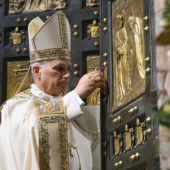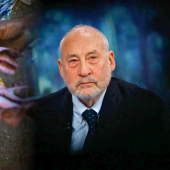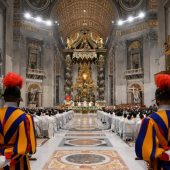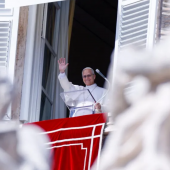“The wounds of the Lord are stronger than sin,” says Pope Francis
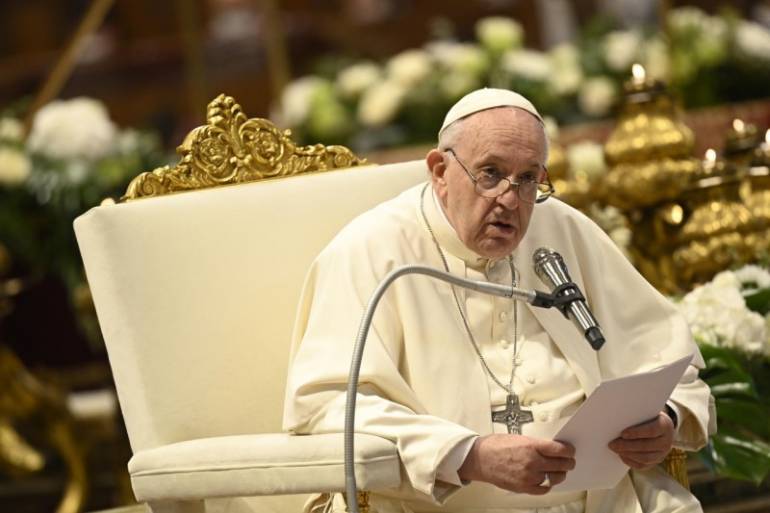
Pope Francis delivered a homily on the reflection of three “Peace be with you!” on Divine Mercy Sunday at St. Peter Square on April 24, 2022.
The Holy Father spoke on three aspects of God’s mercy—joy, the forgiveness of our sins, and comfort in every difficulty.
He reflected on the first “Peace be with you!” as joy; a joy born of pardon and peace. “God’s mercy gives joy, a special joy, the joy of knowing that we have been freely forgiven.”
Francis said that the disciples locked themselves not only behind the closed doors due to fear but also closed themselves to a sense of failure; a failure of unfaithfulness, denial, betrayal, and running away from him at the time of trials.
Pope Francis said about the joy born of receiving “pardon and peace.”
According to him, “The joy God gives is indeed born of forgiveness. It bestows peace. It is a joy that raises us without humiliating us.”
The pope invites all how to experience the transformative joy. “Let us put the memory of God’s warm embrace before the memory of our own mistakes and failings.”
The second “Peace be with you!” followed by sending a mandate, the Holy Father reminded the priests, “missionaries of mercy: if you do not feel forgiven, do not carry out your service as a missionary of mercy until you feel that forgiveness. The mercy that we have received enables us to dispense a great deal of mercy and forgiveness.”
The pope admonished the priests that the merciful confessors are not the holder of some power but the ones who convey the mercy that they first received.
“You must be channels of that forgiveness through your own experience of being forgiven.”
The pope added, not to torment the faithful in the confession but to understand their situation, to listen, forgive, and offer good counsel so that they can move forward. God forgives everything and we must not close that door to people.
It is necessary to understand their situation, listen, forgive and offer good counsel so that they can move forward. God forgives everything and we must not close that door to people, the prelate said.
The pope encouraged, “We are the ones who tire of asking forgiveness but he always forgives.”
Reflecting on the third time “Peace be with you!” Pope Francis said that Jesus comes to help Thomas rather than reproach him for his disbelief. By kindly asking him to put his finger into the nail marks of Jesus, the apostle becomes a believer from a disbeliever.
The Holy Father urged the priests, “In our ministry as confessors, we must let the people see that amid their sin, the Lord offers his wounds to them. The wounds of the Lord are stronger than sin.”
The prelate teaches that divine mercy makes us aware of others’ suffering in our crises and our difficulties.
“If we care for the wounds of our neighbor and pour upon them the balm of mercy, we find being reborn within us a hope that comforts us in our weariness.”
The pope invites the faithful to encounter Jesus by spending time to listen, be present, or to bring comfort another person who is suffering physically or spiritually.
“From the eyes of all those who are weighed down by the trials of life, he looks out at us with mercy and says: Peace be with you!”
The Divine Mercy Sunday Mass was presided by Archbishop Rino Fisichella, the President of the Pontifical Council for Promoting the New Evangelization and Pope Francis participated and delivered the homily.
The Divine Mercy Sunday is the Sunday after Easter Sunday. Pope St. John Paul II established the Divine Mercy Sunday on April 30, 2000, at the Canonization of the 20th Century Polish nun, Blessed Sister Maria Faustina Kowalska, known as the apostle of Divine Mercy.
Radio Veritas Asia (RVA), a media platform of the Catholic Church, aims to share Christ. RVA started in 1969 as a continental Catholic radio station to serve Asian countries in their respective local language, thus earning the tag “the Voice of Asian Christianity.” Responding to the emerging context, RVA embraced media platforms to connect with the global Asian audience via its 21 language websites and various social media platforms.










